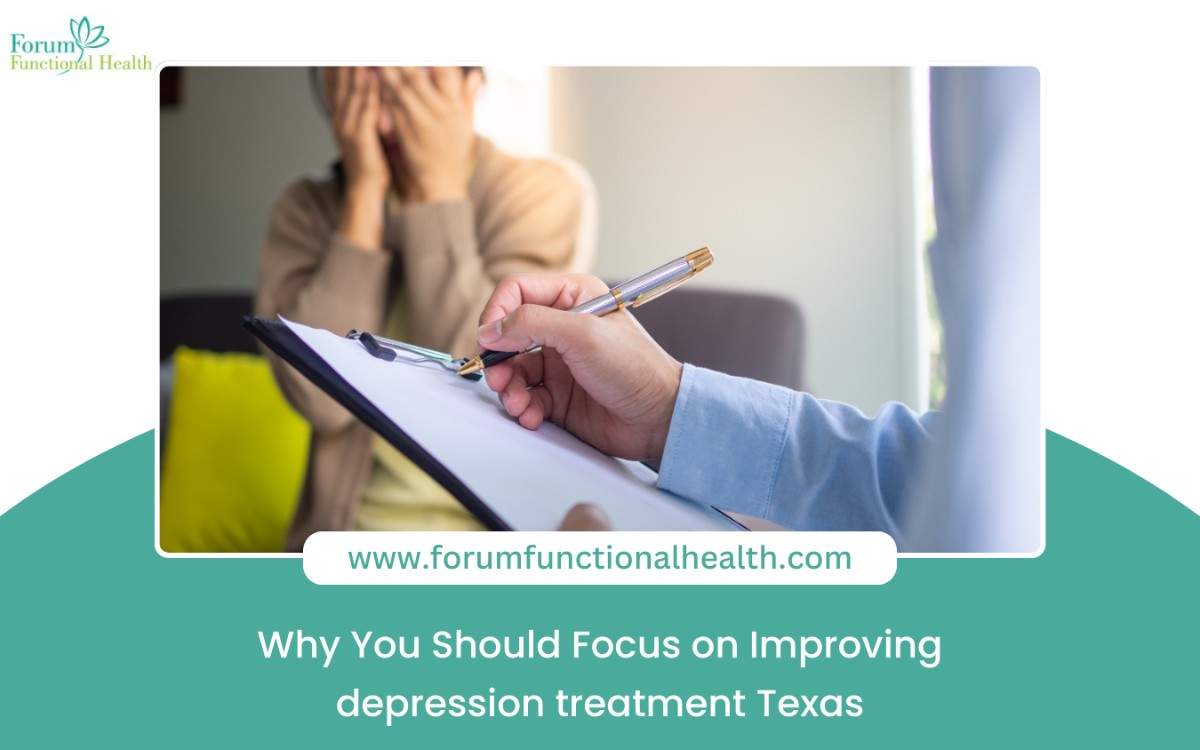Why You Should Focus on Improving depression treatment Texas

Depression is a widespread mental health condition affecting millions worldwide. Despite its prevalence, many individuals do not receive adequate treatment. Improving depression treatment is not just about better medications—it’s about holistic care, accessibility, and reducing stigma. This article explores why enhancing depression treatment should be a priority and how it can transform lives.
Understanding Depression
What is Depression?
Depression is more than just feeling sad. It’s a persistent mental health disorder characterized by:
- Prolonged sadness or hopelessness
- Loss of interest in activities
- Fatigue and low energy
- Changes in appetite and sleep patterns
- Difficulty concentrating
- Thoughts of self-harm or suicide
Types of Depression
- Major Depressive Disorder (MDD) – Severe symptoms affecting daily life.
- Persistent Depressive Disorder (Dysthymia) – Chronic, long-term depression.
- Bipolar Depression – Alternating episodes of depression and mania.
- Postpartum Depression – Occurs after childbirth.
- Seasonal Affective Disorder (SAD) – Depression triggered by seasonal changes.
Why Improving Depression Treatment Matters
1. Rising Global Mental Health Crisis
- Over 264 million people suffer from depression globally (WHO).
- Suicide rates are increasing, with depression being a leading cause.
- Better treatment can save lives and reduce healthcare burdens.
2. Current Treatment Gaps
- Underdiagnosis: Many cases go undetected due to lack of awareness.
- Limited Access: Therapy and medications are expensive or unavailable in some regions.
- Stigma: Fear of judgment prevents people from seeking help.
3. Advances in Treatment Options
- Therapy Innovations:
- Cognitive Behavioral Therapy (CBT)
- Dialectical Behavior Therapy (DBT)
- Online therapy platforms (BetterHelp, Talkspace)
- Medication Improvements:
- New antidepressants with fewer side effects
- Personalized medicine based on genetic testing
- Alternative Treatments:
- Ketamine and psychedelic-assisted therapy
- Transcranial Magnetic Stimulation (TMS)
4. The Role of Early Intervention
- Early treatment leads to better recovery rates.
- Reduces the risk of chronic depression.
- Prevents worsening symptoms and comorbidities (anxiety, substance abuse).
5. Holistic Approaches to Depression Treatment
- Lifestyle Changes:
- Exercise (boosts endorphins)
- Balanced diet (omega-3, vitamin D)
- Sleep hygiene
- Mindfulness & Meditation:
- Reduces stress and improves emotional regulation
- Social Support:
- Strong relationships decrease isolation
Steps to Improve Depression Treatment
1. Increasing Awareness & Reducing Stigma
- Public education campaigns
- Celebrity and influencer advocacy
- Workplace mental health programs
2. Making Treatment More Accessible
- Teletherapy and mental health apps
- Government-funded mental health programs
- Insurance coverage for therapy
3. Personalized Treatment Plans
- Genetic testing for medication compatibility
- Tailored therapy approaches based on individual needs
4. Integrating Technology in Mental Health Care
- AI-powered mental health chatbots
- Wearable devices tracking mood and stress levels
- Virtual reality (VR) therapy for exposure treatment
Success Stories: How Improved Treatment Helps
- Case studies of individuals who recovered through advanced therapies.
- The impact of community support groups.
- How policy changes improved mental health care in certain countries.
Conclusion
Improving depression treatment is not just a medical necessity—it’s a societal responsibility. By investing in better therapies, increasing accessibility, and reducing stigma, we can help millions lead healthier, happier lives. If you or someone you know is struggling with depression, seek professional help and explore the latest treatment options available.
